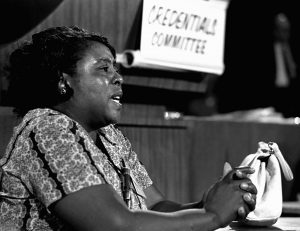(ThyBlackMan.com) October is Breast Cancer Awareness Month, and the proliferation of pink ribbons is about to start. Predatory capitalists will make breast cancer their cause, producing pink t-shirts, pocketbooks, everything. It’s a mixed blessing, this awareness, because too many will make this both a marketing and a profit-making opportunity, while others will wonder how they can use their health insurance to afford a mammogram. Health equity is a major issue, and there is a gap in health care and health access. It is especially sharp when we address the issue of breast cancer.
While Black women get breast cancer at a lower rate than white women, we are 42 percent more likely to die from it. And young Black women, those under 35, are twice as likely as white women to get breast cancer, and three times as likely to die from it. Black women are also three times as likely as white women to get triple-negative breast cancer, an especially aggressive form of breast cancer.
I am privileged to know Ricki Fairley, a triple-negative breast cancer survivor, and marketing maven who now holds a leadership role at the nation’s oldest and largest black women’s breast cancer network group. Sister’s Network, describes itself as a “survivorship organization” that provides support for Black women who are diagnosed with breast cancer. Ricki only recently joined the organization as its Vice President for Strategic Partnerships and National Programs, and she is on a mission to raise awareness about breast cancer in the African American community. Propelled by her own survivorship story, but also by the many women she has provided support for, she is passionate about the reasons that African American women must be informed and engaged around breast cancer issues.
Our civil rights icon, Fannie Lou Hamer, died of untreated breast cancer. She was just 59 when she made her transition, and one can only speculate about why this fearless leader had an untreated disease. Her untreated breast cancer was not the first collision she experienced with our racist health care system. At 44, she had surgery to remove a tumor, and the hospital also gave her a hysterectomy without her consent. These unconsented sterilizations happened to lots of Black women in southern states. It eroded the trust that many Black women had in our health care system. Had Fannie Lou Hamer noticed a lump, would she be inclined to return to the health care system that had already oppressed her? Probably not.
Fannie Lou Hamer was poor and vocally Black in the South. Serena Williams is wealthy, Black and an international superstar. Despite her privilege, Williams also experienced the differential way the health care system treats Black women. Serena might have died giving birth to her daughter, Alexandra. Because Williams was gracious enough to share her story, we are reminded that Black women are all too often ignored or dismissed by health care providers. Racial bias in the medical field is not only real, but also life-threatening. Reference Fannie Lou Hamer. Ask Serena Williams. Consider the thousands of Black women that are being sidelined by a health care system that does not hear our voices.
What must we do to ensure that Black women don’t carry the heavy burden of health disparities? We must be mindful and aware of the risks of breast cancer. We must talk about breast care with our sisters and our young ‘uns. We must engage in a policy conversation about the ways health insurance can support our breast health. Too often, health insurance covers some, but not all, of the cost of screening. We must engage our civic organizations in breast health education.
We must remember Fannie Lou Hamer, who said she was “sick and tired of being sick and tired.” That means as tired as we are of being tired, we must also be committed to taking care of ourselves. Too many studies say that Black women ignore self-care for the care of others.
Fannie Lou Hamer was a leader and an icon. She was also a Black woman who gave voice to her tiredness and the way it impacted her. In saying that she was “sick and tired of being sick and tired”, she challenged us all to be less sick, less tired, and more self-aware. If we celebrate her, we must hear her. The health care system is biased against Black women, and we must take our health care in our own hands. Neither sick, nor tired, just empowered. And in October, Breast Cancer Awareness Month, be supportive of organizations like the Sister’s Network, an organization that provides opportunities and services for the Black women who are diagnosed with breast cancer. We must do this in the name of Fannie Lou Hamer.
Written By Julianne Malveaux
FB Page; http://facebook.com/julianne.malveaux

















Leave a Reply